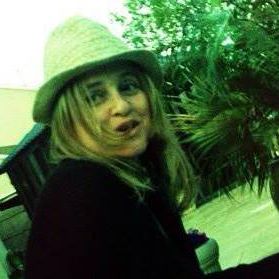So what is the big difference between the film and TV industries? And why is American TV so successful? There are surely as many theories as there are shows, and they are probably all right. Still, allow me to add one more, based on one very important difference that I believe has been overlooked till now despite its enormous significance.
In the movies, and unless writer and director are one and the same person, the one person who has deep knowledge of the story is the one who cannot hear whether her lines are working, cannot see what is doing the job and what is not; and when the scene is on its feet, cannot delete or add anything. It is someone else who will do all that, if it is done at all – and all this happens in the name of some strange policy deriving from fearing the writer and excluding her from the process.
Most professional screenwriters and TV writers will not invoke the sanctity of the screenplay as they have written it – but they will caution against the arbitrary disintegration of story and characters which happens when the original writer is not involved. In TV the original writer may indeed be rewritten during production, sometimes (rarely) even in her absence. But never in the absence of the showrunner, who is ultimately a writer more than anything else – a writer who was there when the story was conceived and who knows the characters’ finest nuances.
Tom Fontana goes further than that. For him, writers not being on set actually makes for bad writing: “In television, things happen so fast it’s really important for a writer to be around and say, ‘Now here’s the intention of the scene.’ If the writer does not participate actively, his instinct is to overwrite the scene and to make it very obvious what the scene is about. But that’s the worst kind of writing, because it has no subtlety. That’s what a writer needs to do when he’s not on set, and that makes for bad TV.”
Or for a bad feature film. Even if things do not happen as fast as in TV (which may not be true) every single word of the above remark is directly applicable to the movies – unless, of course, writer and director are one and the same person.
Here is a thought for you: what if the rise and success of auteur film as well as the originality and strength of films written and directed by the same person are not so much a matter of a single signature but of the mere fact that the writing has remained alive till the very end, since the writer was on set throughout? Could it be that the brilliance of many auteur films is ultimately based on the fact that the writer is on set (as she is also the director) and can therefore work further on the script once the scenes are on their feet, as we say? Could it be that auteur cinema is ultimately more about the way writing is being treated in its process than about anything else? Perhaps, ultimately, it is the writer’s presence on set that is the big secret of success of American TV?
Next Up: Post #10: How to Change the World (And, Most Importantly, Why) – Part I
If you are interested in reading more, including the full interviews on their process as writers with creators such as Terence Winter, Tom Fontana, Warren Leight, Robert Carlock, Janet Leahy and many more, you can purchase the book Inside the Writers’ Room. Conversations with American Writers here.
 Christina Kallas has written and produced several feature films and TV shows in Europe before she relocated to New York in 2011, where she is currently teaching at Columbia University’s and Barnard College’s Film Programs, and editing her next feature film (and her first as a director,) 42 Seconds of Happiness. She is the author of six books in her three writing languages, including the above book as well as Creative Screenwriting: Understanding Emotional Structure (London/New York, 2010). Most recently, she was honored for her outstanding contribution to the international writers’ community in her eight years of tenure as President of the Federation of Screenwriters in Europe. You can reach her at improv4writers@gmail.com and follow her on Facebook or Twitter and join the Writers Improv Studio group page for updates.
Christina Kallas has written and produced several feature films and TV shows in Europe before she relocated to New York in 2011, where she is currently teaching at Columbia University’s and Barnard College’s Film Programs, and editing her next feature film (and her first as a director,) 42 Seconds of Happiness. She is the author of six books in her three writing languages, including the above book as well as Creative Screenwriting: Understanding Emotional Structure (London/New York, 2010). Most recently, she was honored for her outstanding contribution to the international writers’ community in her eight years of tenure as President of the Federation of Screenwriters in Europe. You can reach her at improv4writers@gmail.com and follow her on Facebook or Twitter and join the Writers Improv Studio group page for updates.





